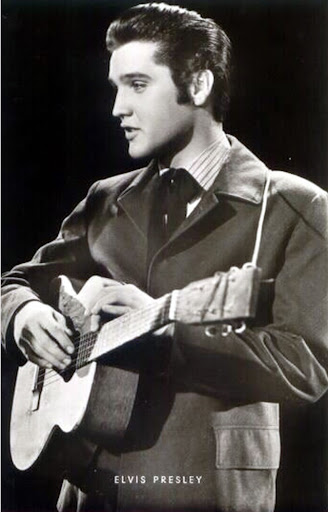
Check out the clip of Elvis’s rehearsal of “The Wonder of You” from Youtube below.
http://www.youtube.com/watch?v=aSodZqm2rv8&feature=related
Through it’s an awesome song, hearing it three or so times is perhaps pushing it. It might even seem like a waste of time for a busy person like yourself. But Elvis didn’t.
Now, unless you’re an intense Elvis fan (like myself) then you might not listen to the whole clip, but you can still pick up the importance of what Elvis does in it.
This clip is from February 1970, a couple months before Elvis did the famous shows that went on to become part of the documentary film Elvis – That’s the Way it Is. You’ll notice that even at this early stage, Elvis and his band are playing very well together. Actually, despite a bit of messing about, the first rehearsal shot at the song would probably have been show worthy. Yet, Elvis and his band go through it again. Then, on the second rehearsal of the song, Elvis actually stops the band and tells them to change what they had been doing well to try something that he felt would be better in the long run.
On the third time through, the band plays once more, sounding better than it had either of the two previous times and with Elvis’s improvement added by the backup singers towards the end of the verse. Compare this to the version of “The Wonder of You” included in Elvis − That’s the Way it Is and you’ll see that in the couple months till those shows, Elvis and the TCB (Taking Care of Business) band had worked on it even more and, as a result, it sounded even better.
Sound like a lot of work? Something that took years for Elvis to build up the dedication to go over a song in rehearsal with a fine-toothed comb to perfect it? Well, no. Looking into Elvis’s past, we can see that he’d been like this years earlier.
When Elvis recorded “Hound Dog” in 1956, he went through 31 takes until he thought it was good enough to put out as a single. 31 takes! Think of going through one of your projects 31 times to get it right.
So, what am I saying? That you should go over something until you can’t stand it anymore. Perhaps not. But what I am saying is that Elvis kept himself to a standard. He would not stop practicing the same song until it was the way he wanted it to be. Then, coincidentally or not, it went out, people loved it as much as he did, and it became a hit. When you believe your work of a certain calibre and won’t settle for anything less, you are bound to keep that certain calibre of work because you wouldn’t submit anything less than that to the world. The higher that standard, the higher the calibre of work and the better the work, the more likely people will want to buy that work.
No, you don’t have to go into rehearsal for days going over a song. No, you don’t have to take 31 takes to have a song put out. But you certainly can go over something until it is a standard you find worthy of selling, enough that you would buy it yourself. Take it from Elvis, and your level of achievement will mirror it.
Elvis’s Lessons:
Ø Hold your work to the highest expectation and let nothing less be enough. Others will wonder why you are so good but you’ll know that your high standards are the ‘secret’.
Ø Keep on trying to improve your work, even if it doesn’t require improving immediately. Change happens one of two ways: you make it happen or it happens to you. It’s much less stressful and rewarding when you initiate change and improve in the way you want rather than being made to change by society and still not being on the edge of innovation.
P.S. If you're interested in hearing Elvis's performance of "The Wonder of You" from Elvis - That's the Way it Is, a couple months after the rehearsal discussed in this article, here's a link to a video of that scene.






